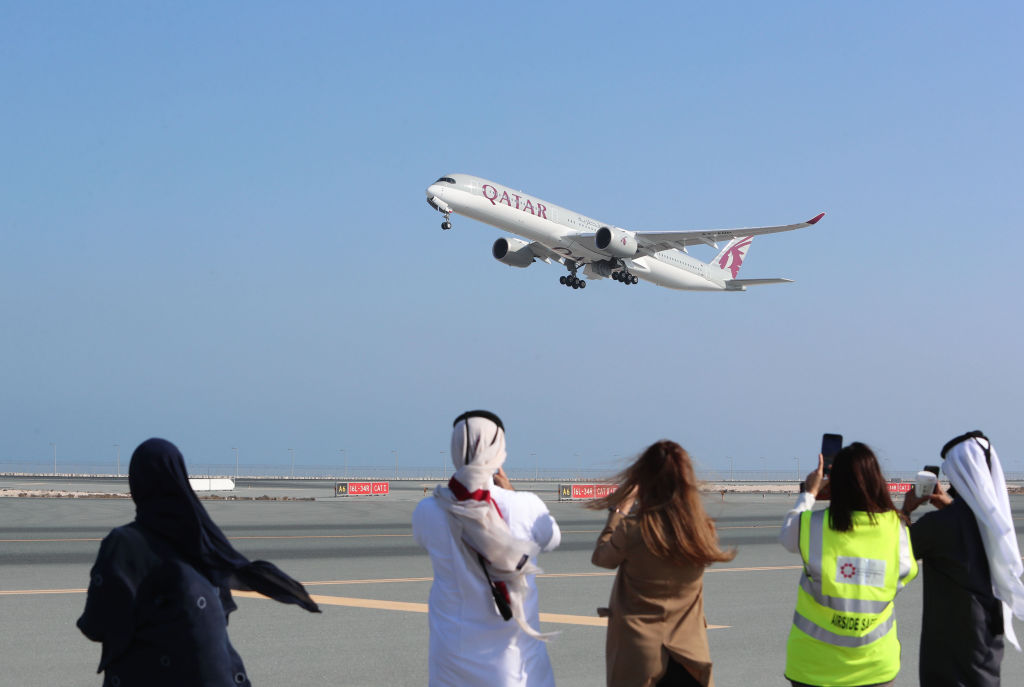
The diplomatic and economic blockade of Qatar led by fellow Arab state Saudi Arabia is over after more than three and a half of years of acrimonious exchanges. It has occurred at Riyadh’s initiative, with backing from President Donald Trump’s outgoing administration in the United States. What has caused this change of position, and will the lifting of the blockade and resumption of ties result in enduring mutual trust?
The Kingdom of Saudi Arabia and its three allied blockaders—the United Arab Emirates, Bahrain and Egypt—severed ties with the tiny, oil-rich Emirate of Qatar for failing to pursue a regional policy in accord with its membership of the Gulf Cooperation Council. They accused Qatar of supporting terrorism in the region. Their target was primarily such Islamist groups as the Muslim Brotherhood, whose elected government in Egypt had been toppled in 2013 by the military, and which had been scorned by Saudi Arabia and its Gulf allies.
They also shunned Qatar over its support for the Palestinian Islamic movement of Hamas, which has been in control of the Gaza Strip since 2007; its good working relations with Iran; and its close ties with Turkey. The Saudis and their allies regard Iran as a serious threat for sectarian, ideological and geopolitical reasons and view Turkey as ambitious in claiming leadership of the Sunni Muslim world, which the Saudi monarchy has historically claimed to be within its province.
The blockers also had misgivings about Qatar’s Al Jazeera TV news network, which exposed governmental, human rights and socioeconomic inadequacies in the Arab world, and Qatar’s potential to rival Dubai economically. These concerns were embedded in a list of 13 demands presented to Qatar in 2017.
Qatar adamantly rejected all of the allegations and refused to budge on its status as a sovereign and independent state or change its regional posture. Its stance was immediately backed by Iran, which couldn’t have been more pleased to see the breakup of the GCC (a defensive organisation made up of Saudi Arabia, the UAE, Kuwait, Bahrain, Oman and Qatar), and by Turkey. Whereas Iran ferried supplies of urgent vegetables and fruit and provided a corridor for Qatar Airways flights, Turkey not only boosted its economic and trade ties, but also beefed up its small military base against any possible Saudi-led invasion of Qatar. Doha also expanded trade with core European countries, whose goods were transported to Qatar through the Omani port of Salalah.
The Qatari government delved into its more than US$40 billion national reserve to meet the costs and move towards self-sufficiency as much as possible. Since most of Qatar’s food supplies had come through Saudi Arabia, the blockade initially created a severe shortage of milk and dairy products. A Qatar businessman immediately purchased 4,000 cows from Germany, the US and Australia to address this shortage.
Initially, the impulsive Trump sided with Saudi Arabia and its allies as the bigger fish in the region. But his then secretary of state, Rex Tillerson, advocated mediation. Trump was made aware that Qatar hosted America’s largest military base in the region—a vital feeding source of American operations in Iraq and Afghanistan. In recognition of Trump’s appetite for boosting America’s arms sales, Qatar signed a deal to buy 36 F-15 fighter jets from the US at the cost of US$12 billion. Recognising the importance of Qatar as a useful ally and the need to avoid inadvertently pushing it further towards Iran and Turkey, Trump rapidly found it beneficial to opt for a more even-handed approach.
Qatar ultimately emerged from the crisis in a stronger position regionally and internationally. Although the mediatory efforts of the emir of Kuwait, whose country and Oman never joined the blockade, and those of Washington cannot be overlooked, it was largely Doha’s resilience that eventually persuaded Riyadh and its partners that they were fighting a losing battle (as is the case in Yemen).
Last week, the Qatari emir, Tamim bin Hamad Al Thani, attended the GCC summit at the invitation of Saudi Arabia’s ageing king, Salman bin Abdulaziz, who concurrently lifted the blockade. Al Thani’s conciliatory response comes from a position of strength. Meanwhile, the development shows once again the vulnerability of King Salman’s powerful son and one of the main architects of the blockade, Mohammad bin Salman, to making serious misjudgements.
While the process of reconciliation has begun, the issues that motivated Saudi Arabia and its partners to punish Qatar have not been addressed. Doha has given no undertaking that it will sever its ties with Iran, downgrade its relations with Turkey, or clamp down on Al Jazeera and require it to be more charitable in its coverage of the problems facing Saudi Arabia and the rest of the Arab world. Nor has it decided to halt its humanitarian assistance to the Palestinians, especially in Gaza, or to renounce its reputation as an advocate of liberalist changes in the Arab world, even if Qatar itself remains a politically tight state.
Three and a half years of bickering and recriminations have generated a sufficient trust deficit to pose an enduring challenge for the GCC partners.

